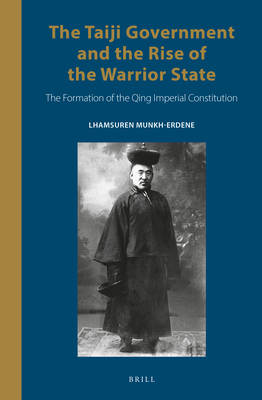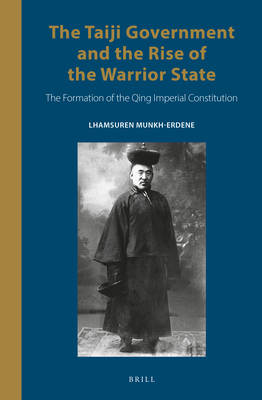
- Afhalen na 1 uur in een winkel met voorraad
- Gratis thuislevering in België vanaf € 30
- Ruim aanbod met 7 miljoen producten
- Afhalen na 1 uur in een winkel met voorraad
- Gratis thuislevering in België vanaf € 30
- Ruim aanbod met 7 miljoen producten
Zoeken
The Taiji Government and the Rise of the Warrior State
The Formation of the Qing Imperial Constitution
Lhamsuren Munkh-Erdene
€ 348,45
+ 696 punten
Omschrijving
Read The Taiji Government and you will discover a bold and original revisionist interpretation of the formation of the Qing imperial constitution. Contrary to conventional wisdom, which portrays the Qing empire as a Chinese bureaucratic state that colonized Inner Asia, this book contends quite the reverse. It reveals the Qing as a Warrior State, a Manchu-Mongolian aristocratic union and a Buddhist caesaropapist monarchy. In painstaking detail, brushstroke by brushstroke, the author urges you to picture how the Mongolian aristocratic government, the Inner Asian military-oriented numerical divisional system, the technique of conquest rule, and the Mongolian doctrine of a universal Buddhist empire together created the last of the Inner Asian empires that conquered and ruled what is now China.
Specificaties
Betrokkenen
- Auteur(s):
- Uitgeverij:
Inhoud
- Aantal bladzijden:
- 568
- Taal:
- Engels
- Reeks:
- Reeksnummer:
- nr. 14
Eigenschappen
- Productcode (EAN):
- 9789004461697
- Verschijningsdatum:
- 14/10/2021
- Uitvoering:
- Hardcover
- Formaat:
- Genaaid
- Afmetingen:
- 157 mm x 239 mm
- Gewicht:
- 1043 g

Alleen bij Standaard Boekhandel
+ 696 punten op je klantenkaart van Standaard Boekhandel
Beoordelingen
We publiceren alleen reviews die voldoen aan de voorwaarden voor reviews. Bekijk onze voorwaarden voor reviews.











